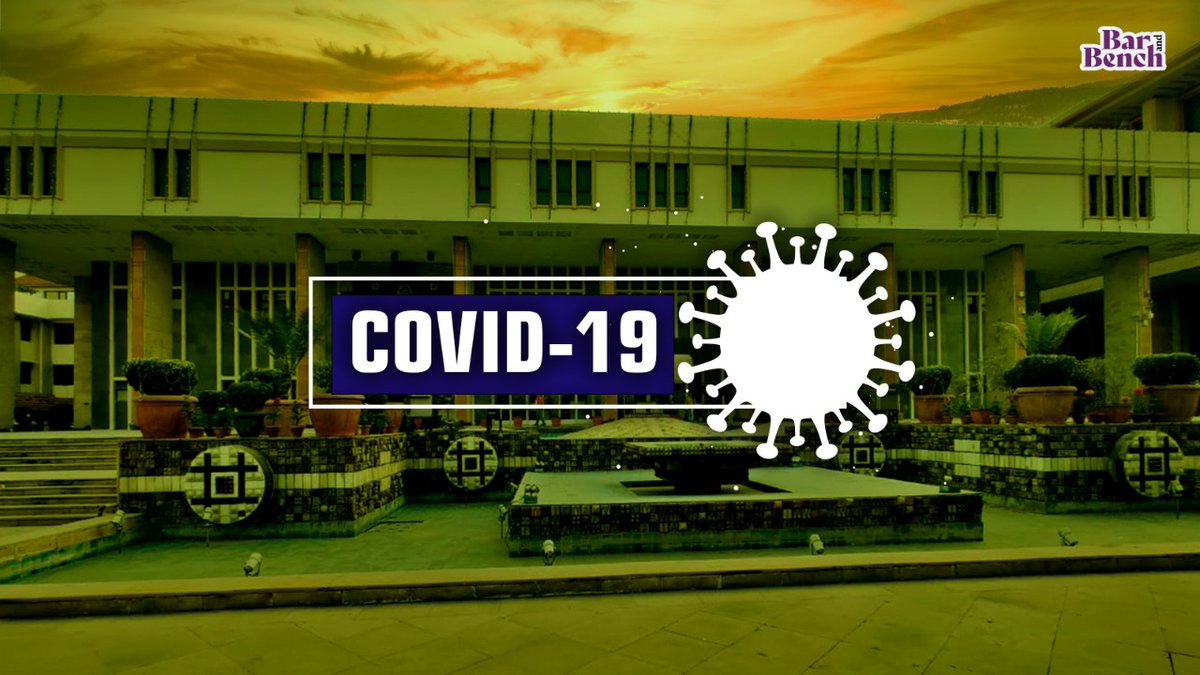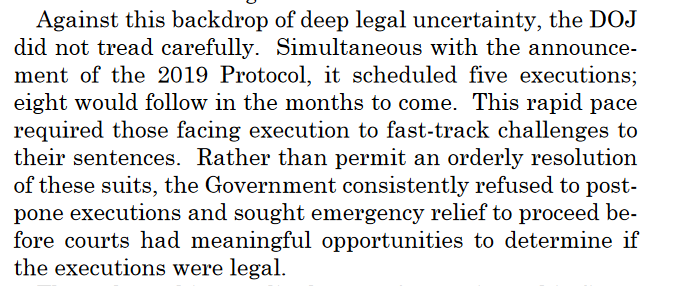
Tonight we have dissents from both Sotomayor and Breyer in the last instance of the Supreme Court waving the matador's cape for Trump's machinery of death without so much as a word of reasoned justification
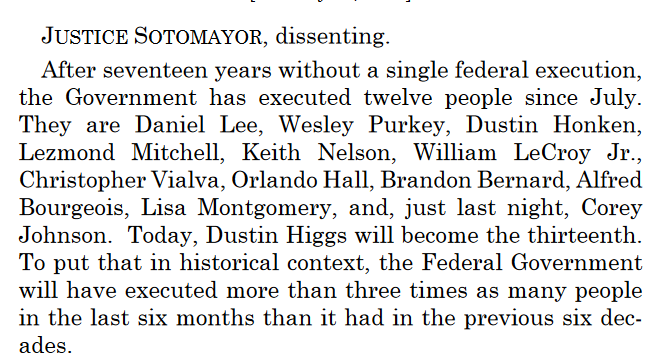

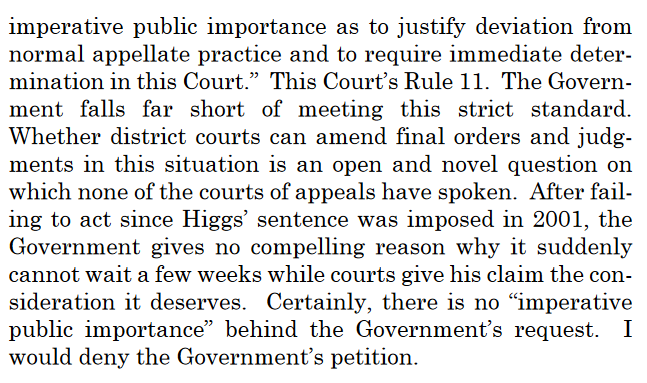
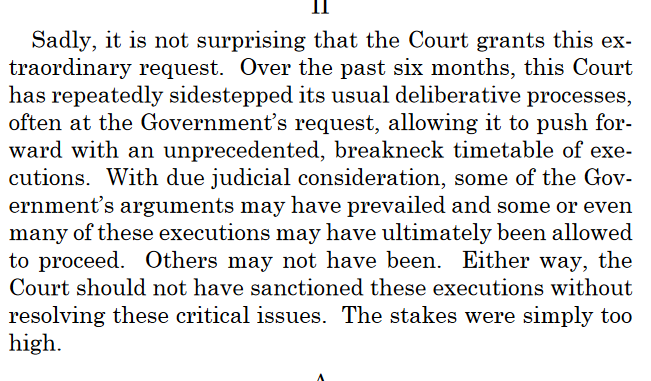
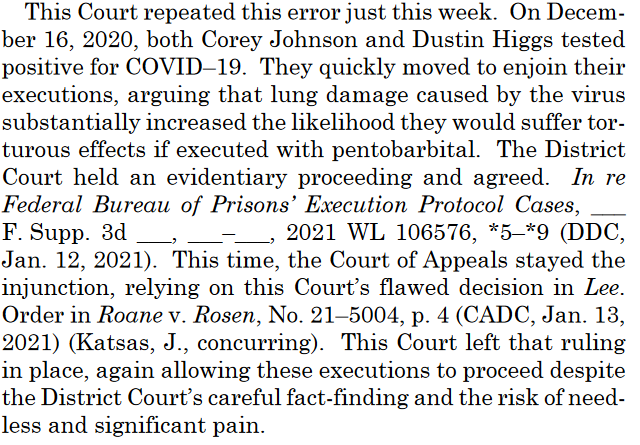
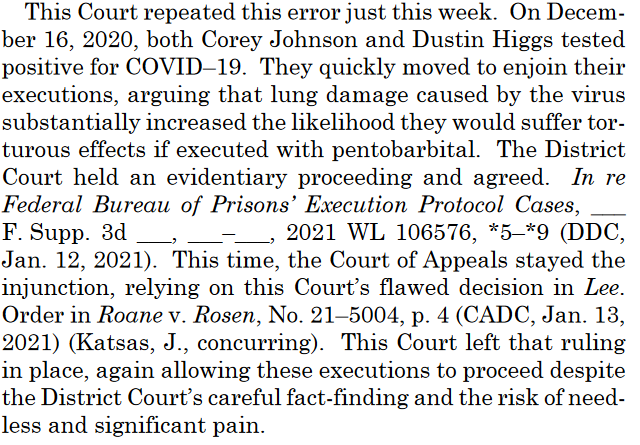

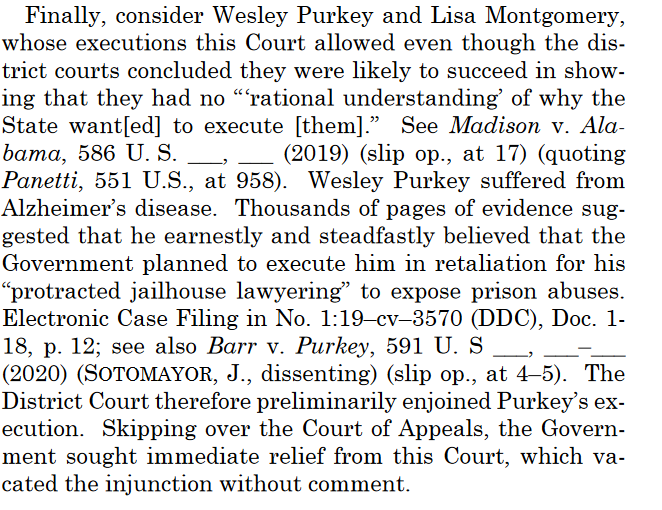
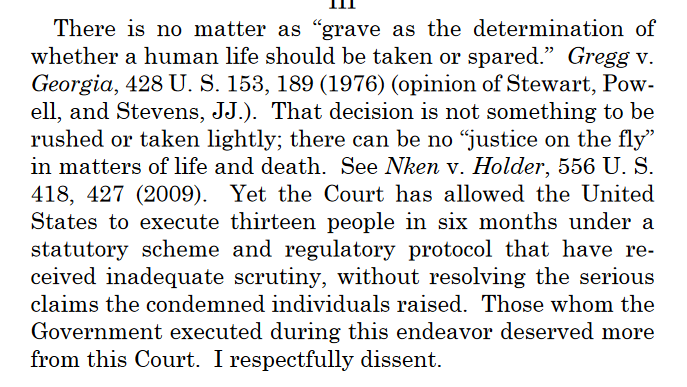
This is my story about the case. Higgs was not the triggerman in the murder of Tamika Black, Tanji Jackson and Mishann Chinn\u2014the government concedes this. The man who was the shooter later said the prosecution\u2019s theory was \u201cbullshit.\u201d https://t.co/Za8lcSB3zN
— Liliana Segura (@LilianaSegura) January 16, 2021
Dustin Higgs was pronounced dead at 1:23 a.m. Saturday, Jan. 16 at FCC-TH. His final words, \u201cFirst, I\u2019d like to state I am an innocent man.\u201d He named the three victims, then said, \u201cI am not responsible for their deaths and I did not order the murders.\u201d
— TribStarLisa (@TribStarLisa) January 16, 2021
More from Law
1. Facts are different from opinions. But stating an opinion can imply a fact. https://t.co/1PkiI4olib

2. When I tweet I aim to be sure A. I show the *facts* I am basing my *opinion* on. B. I have good reason to believe the *facts* are true. C. My opinion is reasonable based on the facts.
Here I am calling Arron Banks a racist (opinion). Pointing out this is because he called for mosques to be demolished (fact). 4/
Reminder: https://t.co/KpWzq0aF8C is run by Arron Banks who called for British mosques to be demolished. They\u2019ve always been openly racist. https://t.co/n8uppHUqQ5
— Simon Cox (@SimonFRCox) October 9, 2019
I can prove this fact - and others - about what Banks has said. And I can justify why in my opinion that shows he’s a racist. 5/
You May Also Like
He has been wrong (or lying) so often that it will be nearly impossible for me to track every grift, lie, deceit, manipulation he has pulled. I will use...

... other sources who have been trying to shine on light on this grifter (as I have tried to do, time and again:
Ivor Cummins BE (Chem) is a former R&D Manager at HP (sourcre: https://t.co/Wbf5scf7gn), turned Content Creator/Podcast Host/YouTube personality. (Call it what you will.)
— Steve (@braidedmanga) November 17, 2020
Example #1: "Still not seeing Sweden signal versus Denmark really"... There it was (Images attached).
19 to 80 is an over 300% difference.
Tweet: https://t.co/36FnYnsRT9

Example #2 - "Yes, I'm comparing the Noridcs / No, you cannot compare the Nordics."
I wonder why...
Tweets: https://t.co/XLfoX4rpck / https://t.co/vjE1ctLU5x

Example #3 - "I'm only looking at what makes the data fit in my favour" a.k.a moving the goalposts.
Tweets: https://t.co/vcDpTu3qyj / https://t.co/CA3N6hC2Lq




